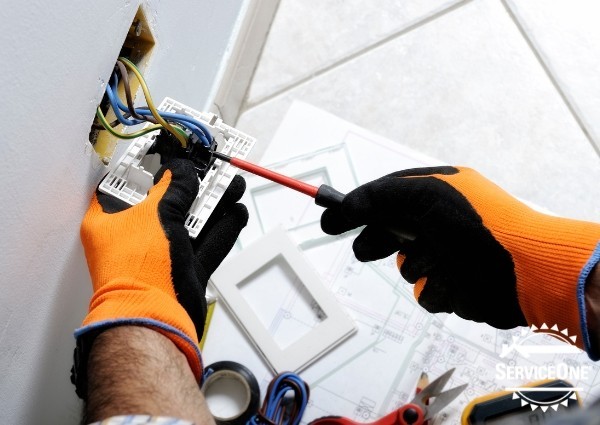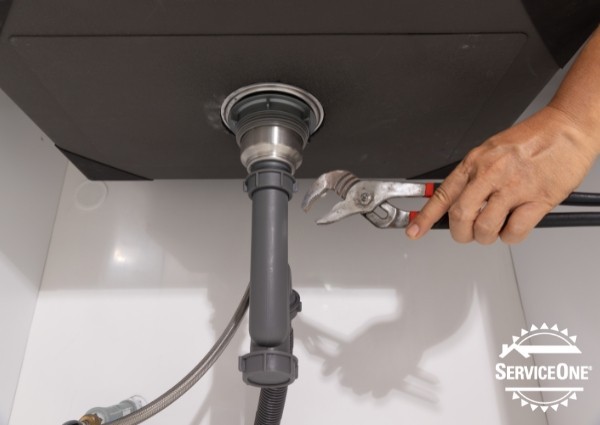One place where air quality is most important is right inside our homes. Poor indoor air quality can have a significant impact on our health, especially when it comes to allergies. Throughout the year, it’s vital that homeowners do what they can to maintain quality and healthy air throughout their homes.
At ServiceOne, we are your indoor air quality experts! We offer many products and services to help improve and maintain the health of your home’s indoor air. In this blog, we explore how poor indoor air quality can affect allergies and overall well-being, as well as introduce two solutions – whole-home humidifiers and UV air purifiers – that can help improve the air you breathe indoors.
Understanding indoor air quality
Indoor air quality (IAQ) refers to the condition of the air within buildings, particularly homes. It encompasses various factors, including the presence of pollutants, humidity levels and the overall cleanliness of the air. Poor IAQ can result from factors such as inadequate ventilation, the use of certain chemicals and the presence of allergens.
Allergies and indoor air quality
Allergies are among the most common health issues worldwide, and they often have a direct connection to indoor air quality. Allergens, such as pollen, dust mites, pet dander and mold spores, can be present in indoor air. When inhaled or come into contact with, these allergens can trigger allergic reactions, ranging from sneezing and congestion to more severe symptoms.
The impact on health
Poor indoor air quality not only exacerbates allergies but can also lead to other health problems. Irritated airways, frequent respiratory infections and exacerbated asthma symptoms are some of the health issues that can result from inhaling contaminated air regularly. Long-term exposure to indoor air pollutants may even contribute to more severe health conditions.
The role of humidity
Maintaining the right level of humidity in your home is crucial for improving indoor air quality and reducing allergen-related problems. When the air is too dry, common indoor allergens like dust mites and mold thrive. Conversely, excessively humid conditions can foster the growth of mold and mildew. This is where it’s important to know the difference between a dehumidifier vs humidifier.
The solution: Whole-home humidifiers
Whole-home humidifiers are an effective way to regulate indoor humidity levels. They integrate with your HVAC system, ensuring that the air throughout your home maintains the ideal moisture content. By maintaining optimal humidity levels, whole-home humidifiers offer many benefits and can help reduce the presence of common allergens and improve indoor air quality. On the flip side, investing in a dehumidifier during the warmer summer months is a great idea as well! Here’s a great article that explains the difference between a dehumidifier vs humidifier.
The role of air purification
Air purifiers are designed to remove particles and contaminants from the air, including allergens. While standalone air purifiers can be useful for specific rooms, whole-home solutions provide comprehensive coverage for your entire living space.
The solution: UV air purifiers
UV (ultraviolet) air purifiers are a highly efficient way to improve indoor air quality. They use UV-C light to destroy microorganisms, including mold, bacteria and viruses, making the air in your home cleaner and healthier. UV air purifiers are especially effective in reducing allergens, as they target the very particles that can trigger allergic reactions.
Poor indoor air quality is a significant contributor to allergies and various health problems. To safeguard your health and enhance your overall well-being, it’s crucial to take steps to improve your indoor air quality. Whole-home humidifiers and UV air purifiers are effective solutions that work together to create a healthier indoor environment. By investing in these technologies, you can enjoy cleaner, allergen-free air and breathe easier in the comfort of your own home.



